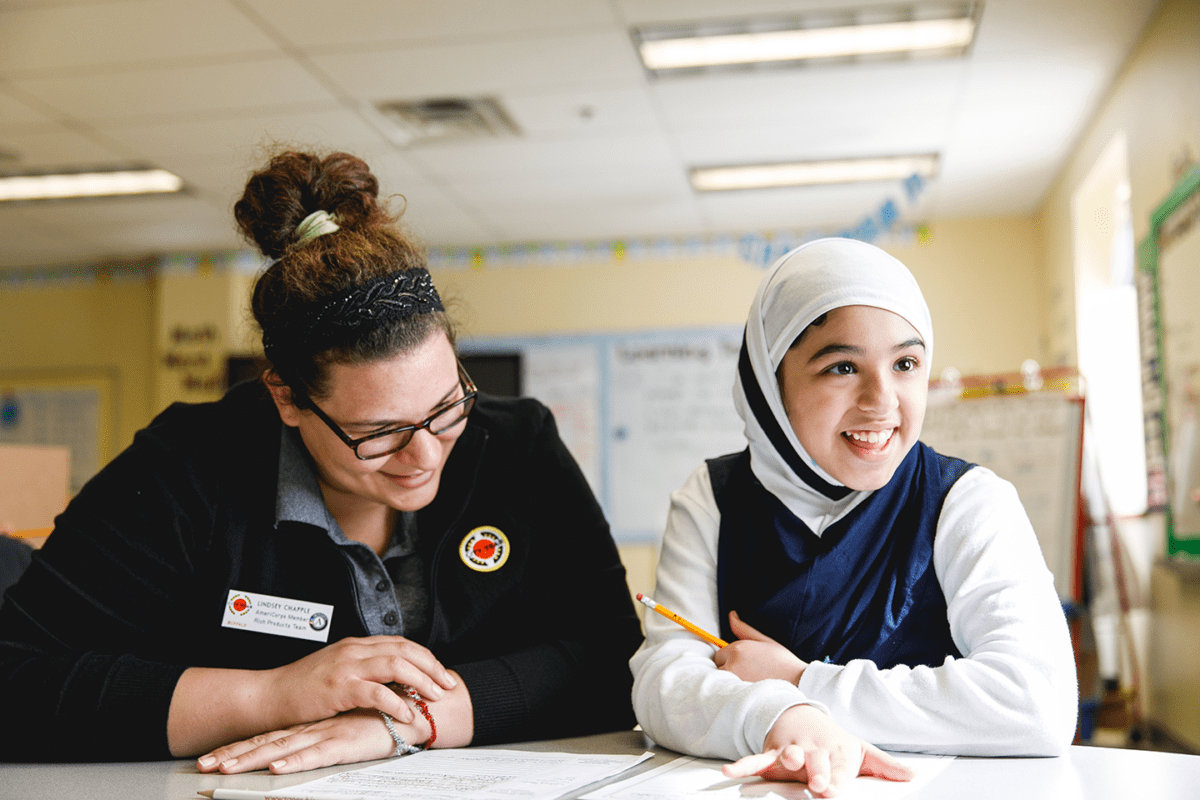Helping students own their learning
“I hate math and math hates me.”
This is something one of my students would say often when I was serving as a City Year AmeriCorps member in Philadelphia in 2019-2020. By fifth grade, this student had grown to hate math so much to the point that he often gave up as soon as he was given an assignment. I found that he tended to work better when he was paired with one of his friends who happened to excel in math; they were able to learn from each other and communicate on a peer-to-peer level that a teacher or tutor couldn’t.
No, math doesn’t hate you. But the fear of constant failure can feel painful especially at a young age. A study by the University of Chicago found that the anticipation of doing math and not the math itself is what prompted pain in brain scans.
How can we work to ensure students are having positive experiences learning while simultaneously challenging them?

When students have agency, they own their learning
Award-winning high school social studies teacher Daniel Willever shared with Education Week, “If students aren’t interested in ‘the question,’” they won’t be interested in more deeply engaging with their learning. By inviting students to ask questions and express their opinions, an environment of inquiry is created in the classroom that promotes dialogue and values student agency, he argues.
“If students aren’t interested in ‘the question,’ they won’t be interested in sharing their answers, beliefs, ideas, or solutions. [Therefore] empowering students to ask their own questions about the world and seek out answers to the problems that interest them, is an essential component of promoting student voice.”
One way to give students more agency is centering their strengths and interests in their learning.
I had another student who refused to participate in small literacy groups, especially when it came to reading aloud. However, I realized she loved writing stories and sharing them with her best friend. I invited her to write whatever story came to mind on a giant whiteboard. She wrote about a princess who had to overcome many adversities.
After she finished writing each scene, I asked her to read aloud what she wrote. Then we would fix any spelling or grammatical errors together. I was able to take something this student found interesting and incorporate spelling, grammar and fluency.
Building relationships can lead to sharing power and knowledge
City Year AmeriCorps members build positive relationships with students that lead to a more inclusive and collaborative environment where students feel able to try new things and make mistakes as part of their learning process.
Kristen Olmsted is City Year’s senior national director of math programs. She encourages all students, educators and AmeriCorps members to have a learner mindset and avoid labeling themselves as a “math person” or “not a math person.” Everyone, Olmstead says, is capable of learning especially if they have a say in their learning and are provided the tools to explore.
Meeting students where they are can “shift the power dynamic of the adult holding all the knowledge to creating a more inclusive and collaborative learning space for all participants,” Olmstead said.
Trust is foundational to learning and development
An AmeriCorps member noted during a recent research project that when they think of an effective relationship between a student and student success coach, they immediately think of the importance of establishing trust to be able to provide academic or social-emotional support to that student.
“Trust [is] the foundation from where they build on.”
Going back to my student who wrote about a princess on the white board, I realize that she was basing the character off herself. We created a space together that felt simultaneously engaging and personal.
This student went from avoiding my reading group to asking me when we could write the next chapter together on the white board.
Learn more about serving with City Year:
Hanna Kim is City Year’s national communications manager and a City Year Philadelphia ’20 alum.
Related stories
Every year, thousands of young people decide to join AmeriCorps programs for a year (or more!) of service, helping to...
Read more about Everything you need to know about returning for another year as a City Year AmeriCorps memberCity Year is committed to providing our AmeriCorps members with resources, opportunities and support that help them to achieve their...
Read more about Empowering Futures: City Year Baton Rouge’s Partnership with Bottom LineFatimah Abdulmateen takes service seriously. Fatimah served two years with City Year as an AmeriCorps member, making her an alum...
Read more about A City Year alum with a passion for service—both here and abroadThough this part of the City Year experience may be particularly challenging, it’s also normal! And we want you to...
Read more about The “mid-fall slump” in schools is real--here's what to expect















